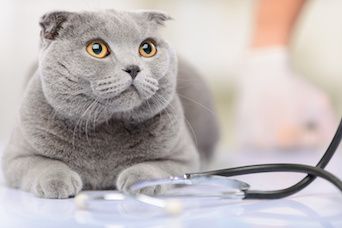Pet Obesity Rises for Seventh Straight Year
Once again, pet obesity is on the rise. But what obesity-related conditions are plaguing our pets?

Of the more than 1.4 million pet insurance claims filed in 2016 through Nationwide, the largest provider of pet health insurance in the nation, 20% were for conditions and diseases related to pet obesity. Unfortunately, this signifies that pet obesity is on the rise for the seventh consecutive year.
Pet obesity amounted to more than $62 million in veterinary expenses in 2016, compared to $60 million in 2015. This continual boost in claims contributes to a 24% growth over the past four years in pet obesity-related conditions.
"Obesity can be detrimental to the livelihood of our pets," Carol McConnell, vice president and chief veterinary medical officer for Nationwide, said in the release. "Pet owners need to be aware of the quality and amount of food or treats they give their furry family members.”
After sorting through its database of more than 630,000 insured pets, Nationwide determined the top 10 dog and cat obesity-related conditions:
Most Common Dog Obesity-Related Conditions
Most Common Cat Obesity-Related Conditions
1. Arthritis
1. Bladder/Urinary Tract Disease
2. Bladder/Urinary Tract Disease
2. Chronic Kidney Disease
3. Liver Disease
3. Diabetes
4. Low Thyroid Hormone
4. Asthma
5. Torn Knee Ligaments
5. Liver Disease
6. Diabetes
6. Arthritis
7. Disease Disc in the Spine
7. High Blood Pressure
8. Chronic Kidney Disease
8. Heart Failure
9. Heart Failure
9. Gall Bladder Disorder
10. High Blood Pressure
10. Immobility of Spine
In 2015, arthritis was also the most common disease in overweight dogs, along with bladder/urinary tract disease as the most common in cats.
The top obesity-related conditions for cats mimicked the top conditions from 2015. For dogs, liver disease rose above low thyroid hormone, along with No. 10 switching from fatty growth in 2015 to high blood pressure in 2016.
It’s easier to get pets to become more active if their owners are up and moving right by their sides. Veterinarians should stress to clients the importance of sticking to an activity plan and might even recommend they incorporate it into their resolutions for 2018.
“The new year presents a perfect opportunity to create regular exercise routines for our pets and begin to effectively manage their eating habits to avoid excess weight gain,” McConnell said. “Scheduling routine wellness exams with your veterinarian is an effective way to get started on monitoring your pet's weight, particularly for cats."
UN, WHO address public health concern over avian flu transmission to humans
April 18th 2024Veterinary professionals working with certain animals are advised to take precautionary steps to minimize risk of infection, while researchers in Texas study potential H5N1 vaccines, antivirals, and antibody therapies for humans
Read More